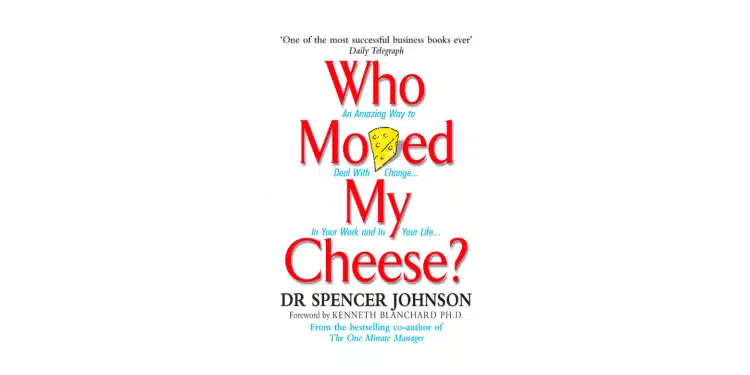Who Moved My Cheese? By Spencer Johnson
Change can be a challenging concept for many people, but it is inevitable. In fact, if you ask a room full of people if they believe others are afraid of change, most will raise their hand. But interestingly, if you ask the same room if they are personally afraid of change, very few will admit it.
This is where “Who Moved My Cheese?” comes in. This book, with over 28 million copies sold, is only 94 pages long but offers valuable insights into the challenge of change and the denial it brings within us. One of my favourite takeaways from this book is the idea that “a change imposed is a change opposed.” In other words, when we resist change, we are actually hindering our own progress.
The book is written in the form of a parable and follows the journey of two mice and two mini-people who find a source of cheese in a maze. Suddenly, their lives are transformed from constantly searching for cheese to having it readily available. However, one day the cheese is gone, and the book describes how each of the four protagonists reacts to this change. The key contrast is between the two mini-people, where one chooses to look for new cheese while the other remains in denial.
The book highlights the importance of embracing change and offers valuable lessons:
- Change is inevitable – eventually, the cheese will move.
- Anticipate change – be ready for the cheese to move.
- Monitor change – keep an eye on the cheese.
- Adapt to change quickly – the sooner you let go of old cheese, the sooner you can enjoy new cheese.
- Change – move with the cheese.
- Enjoy change – savour the adventure and the taste of new cheese.
- Be ready to change quickly and enjoy it again and again – they keep moving the cheese.
I highly recommend “Who Moved My Cheese?” to anyone going through a period of change in their life, whether it be a new competitor in business, a new boss, enforced redundancy, or a change in personal relationships. The book emphasises that it’s not the change itself that matters but how we respond to it. The sooner we adjust to the new paradigm, the sooner we can return to a happy equilibrium.



Get involved!
Comments